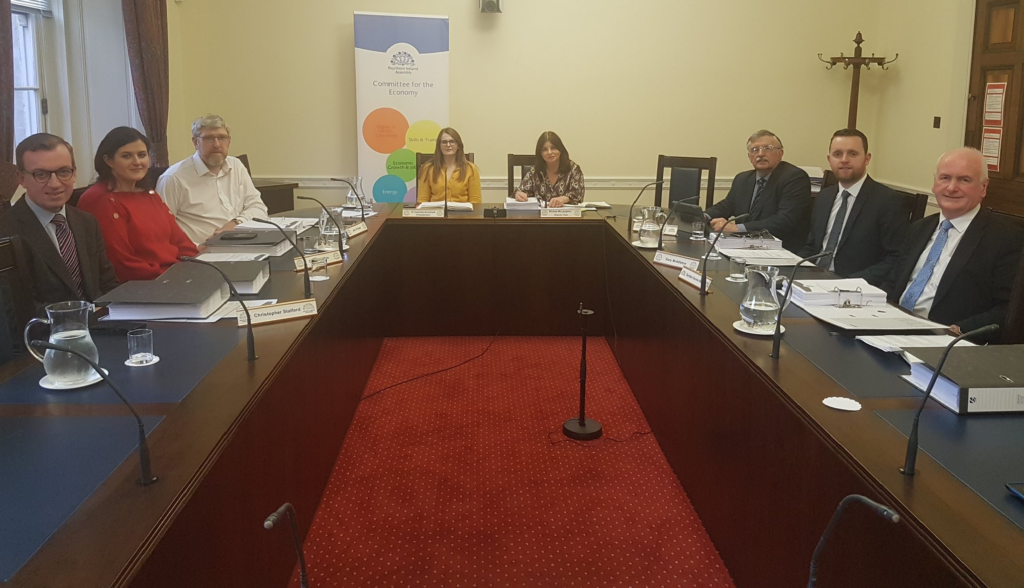The Protocol on Ireland/Northern Ireland and Committee scrutiny
By Emma Dellow-Perry & Aidan Stennett

The Protocol on Ireland/Northern Ireland is part of the Withdrawal Agreement between the UK and the EU. It is intended to align Northern Ireland to some areas of EU law while maintaining the integrity of the UK’s internal market and customs area.
Owing to the nature of the Protocol, dealing with trade, goods, electricity and state aid, some of its provisions impact on areas of devolved responsibility. For example, EU rules about applicable standards for medical devices are contained in the Protocol, which could affect matters under the responsibility of the Department of Health. Rules about the market for electricity will impact the Department for the Economy, because it has responsibilities for energy policy. As statutory committees scrutinise the work of individual departments, (so the Committee for Finance scrutinises the work of the Department for Finance and so on) departmental responsibilities fall within the scrutiny remit of the relevant committee.
The graphics below have summarised and simplified those remits into policy areas which relate to the Protocol, and aligned those policy areas to the parts of the Protocol which will impact them. These graphics were originally developed as part of research RaISe carried out for the Committee for Finance and the Committee for the Executive Office. Where departmental responsibilities or scrutiny areas are not directly impacted by the Protocol, these have not been included.
These graphics are for illustrative purposes only and should not be taken as advice, legal or otherwise.
Please scroll through the graphics using the side arrows in order to view each committee.

